I have just read an article on Houzz.com titled “How To Work with a Professional Organizer”, and the subsequent posts from decorators, interior designers, regular people, and an organizer or two. What I didn’t read, and what seemed to be the underlying theme for most of the posts was nobody really understands what or who a Professional Organizer is.
I hope to clear up the confusion. I am also not suggesting you hire anyone.
First of all, Professional Organizer is a BROAD term, that covers many, many different aspects. Not all PO’s are generalists, there are many who have specialities such as business organizing, paper organizing, hoarders, children, elderly, TBI, storage, electronic, etc… If you can think of something that you might need some sort of organizational help with, there is probably an PO that specializes in that area. We are not just home organizers.
As mentioned in the article, there is a professional association called the National Association of Professional Organizers, of which there are roughly 4000 members. NAPO has a code of ethics of which we base our businesses and reputations on. You can read more about NAPO and it members here; www.napo.net. There is another professional association, formerly called the National Study Group for Chronic Disorganization, now called Institute for Challenging Disorganization (www.challengingdisorganization.org) which is all about studying, researching, learning and teaching the best ways to work with those who have physical and mental challenges with organizing. They were the ones who came up with the “Clutter – Hoarding Scale”
“The Clutter — Hoarding Scale is an assessment measurement tool, developed by the Institute for Challenging Disorganization (ICD) to give professional organizers and related professionals definitive parameters related to health and safety. The ICD is a non-profit 501(c)(3) educational organization whose mission is to benefit people challenged by chronic disorganization.”
There is also the Board of Certified Professional Organizers, that is not affiliated with either of these other two groups, and their mission is to recognize and raise industry standards, practices and ethics.
BCPO® Certification is a voluntary, industry-led effort benefiting the members of the organizing profession, as well as the general public. The Certified Professional Organizer® (CPO®) credential recognizes professionals who have met specific standards and proven, through examination and client interaction, that they possess the body of knowledge and experience required for certification. This certification program recognizes and raises industry standards, practices and ethics, and lets clients know that CPOs are committed and serious about the work being done.
Now, you don’t have to be a member of any of these groups to call yourself a professional organizer. Part of being a professional is acting professional and having the knowledge base, and knowing you are there to help people, not do them more harm. I don’t think there is anybody in the professional organizing business who would purposely do harm to any of our clients, it is not in our nature. We chose this profession for a reason, and that is to help people who are asking for our help.
Ok, now that that is out of the way, let’s begin on what is it that a PO does.
Most of the time, people are not calling a PO just because they need their bathroom or closet or entryway, pantry, garage, attic, or life cleaned up like a maid would do. They are calling because they have reached a point in their lives that they can’t figure out the solution on their own. The problem, whatever it is, is a large lumbering burden on their lives that they don’t know how to conquer.
To many outside of their lives, it can be seen as just junk and garbage, and being lazy for not keeping your clothes in your closet, or trash can’s emptied, or mail sorted. But the outside person is not inside the clients mind and doesn’t know what they are thinking, doesn’t know what scares them, doesn’t know why they have decided to keep what they have kept. I am not just talking about hoarders, I am talking about everybody who feels that they don’t have a solution to their problem, no matter what the size.
One of the things that a PO will always have close at hand is a travel pouch of tissues. It is not to clean our hands from the dirt and grime we sometimes get into. It is because something as small as a penny or as large as a quilt, or chair, has effected someone so deeply that just touching it will make them tear up or cry. We are not tissue holders, but we are hand holders and we do listen and we do help the client understand what it is that might be effecting them so deeply. Usually we are then told a story or a memory, discuss solutions for the article and then act on them.
We are not trash junkies just wanting to throw everything out. Not everything has to look cute or pretty or trendy. The idea is to look at the whole picture, discuss and determine a plan of action and then follow the plan of action as best you can. This can take a lot of time, or it can take a short amount of time, it all depends on the project and the persons needs.
We as PO’s have a body of knowledge that most people don’t. We come up with solutions to problems, we project manage moves, downsizing, remodeling. We help people find efficient ways to set up their surroundings and then TEACH them how to maintain what has been worked on.
Yes, there are a lot of people who don’t understand what the difficulty is of going through stuff that you have kept for a long time. Until you do it on your own, WITH your own stuff, you won’t understand how time consuming and emotionally draining it is to do that. People don’t really understand how much they have until they have to move, or until they are cleaning out their parents house, and everything in there has a memory to them. It is at that time where that easy hill has turned into a mountain where you can’t see the top.
Some people feel they don’t need a PO, and they don’t ‘get it’, and that is fine. Just don’t think and differently or negatively about the people that do need one. You wouldn’t think anything less of somebody going to a mental health counselor, why would you think less of them or the profession for needing help being organized.
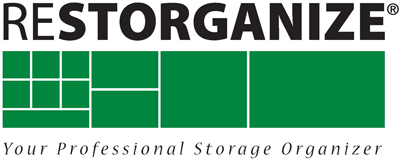

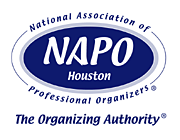
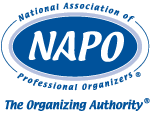
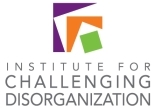

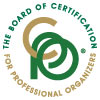
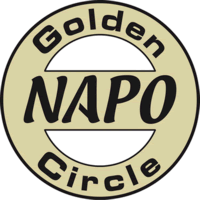

Love this! I know that people need us to help them, but this is a great way to share what we do, how we do it, and more! Thanks for all the insights!
Thanks Ellen for the kind words. That means so much coming from you.
Great article! This industry is still so relatively new that it’s sometimes hard to put into simple bullet point terms what we ‘do’. You’ve certainly added some wonderful and helpful insights on how to articulate to the masses. Thanks!
You’re welcome Heidi. And you’re right, even though NAPO has been around for about 30 years, we are still relatively new, and getting the word out will help us become more mainstream.
Thank you for the kind words.
Judson
Excellent post. i am a PO and use a team approach to working with clients. I say “amen” to all you shared about what we do.
Thanks for writing it.
Thank you Amy. I look forward to trying the team approach in the future. I know many organizers who use it.